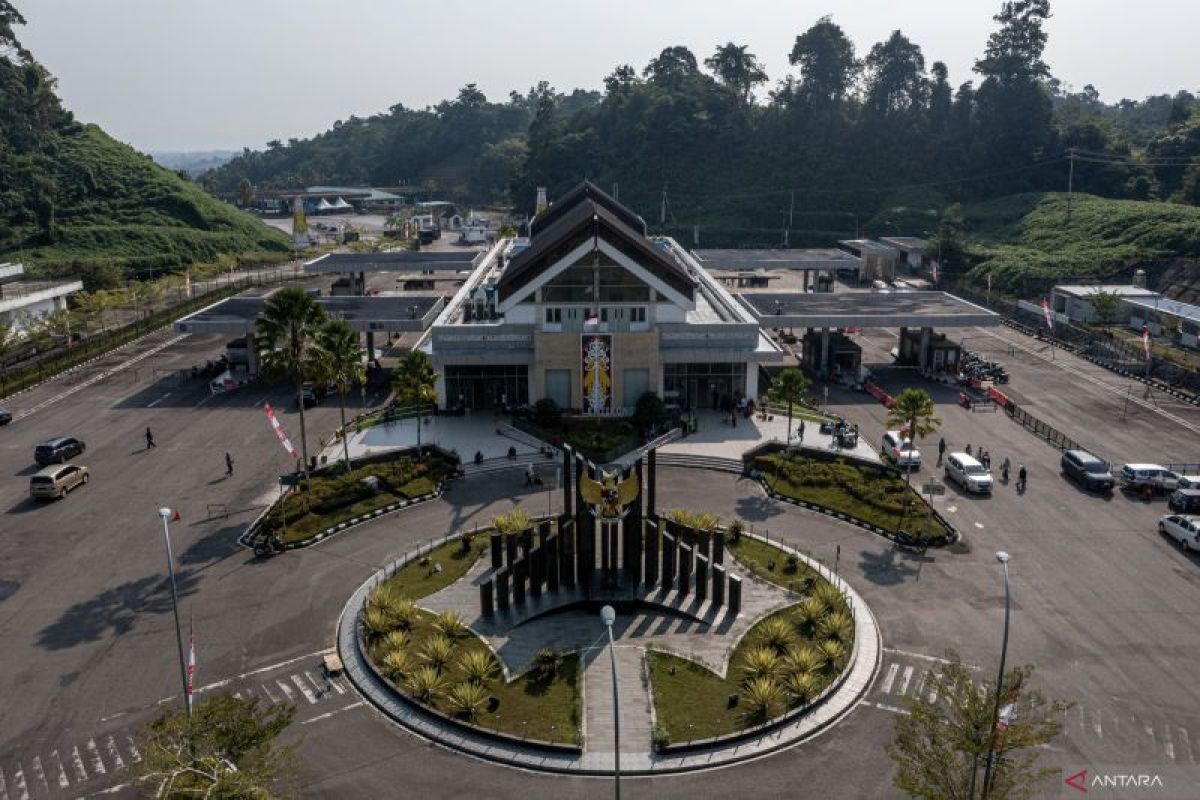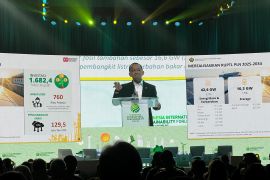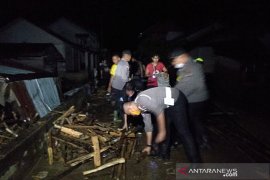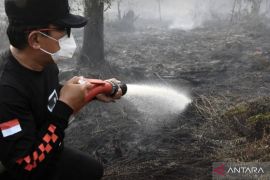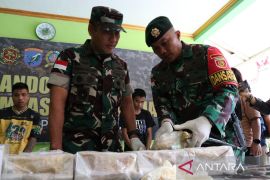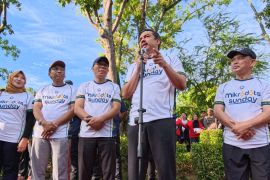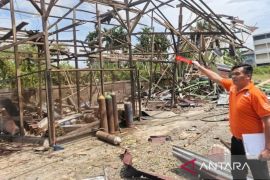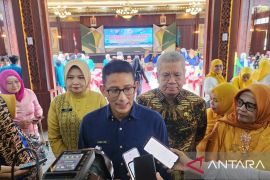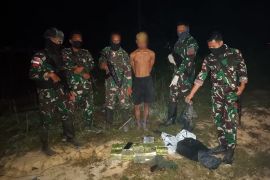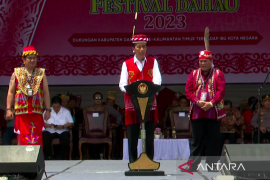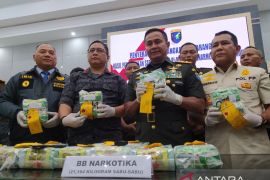Air transportation may still be a popular choice for traveling owing to the time efficiency. However, land transportation can be another alternative at affordable prices, especially for the residents of Pontianak, West Kalimantan.
It takes seven hours of travel time from the Sei Ambawang State Cross Border Terminal, West Kalimantan, to the Kuching Central Bus Terminal, Sarawak, Malaysia.
Departures from Sei Ambawang are available in two trips -- at 7:00 local time in the morning and 23:00 local time in the evening -- with a ticket price of Rp270 thousand. The bus is quite comfortable with a wide gap between seats, footrests, air conditioning, a storage compartment at the top, a socket for charging, and a mini toilet.
Buses bound for Pontianak-Brunei Darussalam are also equipped with the same facility. However, the travel time is longer, at approximately 22 hours, with a distance of 1.137 kilometers. The ticket price is Rp1.1 million, with several stops to eat and rest.
Departures to Brunei Darussalam are only available on Monday, Wednesday, and Friday at 7:00 local time, while the Brunei Darussalam-Pontianak route is available on Tuesday, Thursday, and Saturday.
Traveling for seven hours and even up to 22 hours is not a short period of time. However, for some Pontianak residents, this is the best choice as compared to having to fly to Jakarta first and then continue to Kuching or Brunei Darussalam.
The trip between Indonesia and Sarawak was relatively smooth without any interruptions. Good infrastructure plays an important role in creating a comfortable ambiance during the trip.
Moreover, several cars with West Kalimantan plates roam around in the Kuching area, Sarawak, since the two regions are easily connected.
The trip to Brunei Darussalam is also relatively smooth with a shorter travel time, from the previous 30 hours before the Pan Borneo Highway that spread from Sarawak, Brunei, and Sabah.
The toll road was able to save eight hours of travel time to reach Bandar Seri Begawan from Pontianak. In future, Pan Borneo will also be directly connected to Indonesia.
Related news: President expects high-speed railway to be part of ASEAN connectivity
Cross-border connectivity
ASEAN connectivity was first proposed through the Master Plan on ASEAN Connectivity (MPAC) in 2010 as a cooperation program between ASEAN countries in building transportation and infrastructure connectivity in the region to realize an ASEAN Community.
ASEAN connectivity is not only related to the success of infrastructure and transportation that connects several countries but is also linked to sustainable development, digital innovation, seamless logistic transportation, superior regulations, and people’s mobility.
Data from the Entikong Immigration Office in West Kalimantan recorded that an average of 532 people pass through the Entikong National Border Post (PLBN) on weekdays and 700 people on weekends. This figure also doubles during holidays.
Their visit purposes may vary from tourism, business, family matters, work, and medical treatment. This shows that Indonesians are quite interested in crossing national borders using land transportation.
Immigration authorities also provide convenience for foreign nationals (WNA) in the form of free visit visas and tourist visit visas for 10 countries in ASEAN, with a stay period of 30 days for tourism purposes.
Apart from the Entikong route, connectivity between Indonesia and Malaysia will also be increased via the Singkawang-Kuching route. Meanwhile for air transportation, Sarawak, Malaysia, and Brunei Darussalam are connected via direct Kuching-Jakarta flights thrice a week, and Brunei Darussalam-Jakarta with the Royal Brunei airline.
Currently, efforts are being pursued to reopen the Pontianak-Kuching route that is highly anticipated by both countries. Apart from that, the Balikpapan-Kuching route is also in high demand.
This route is close to the new capital city (IKN) Nusantara and is expected to encourage the potential for further cooperation or collaboration between Indonesia and Sarawak, Malaysia.
Economic Consul of the Consulate General of the Republic of Indonesia (KJRI) in Kuching, Sarawak, Malaysia, Theodorus Satrio Nugroho, stated that similarity in groups, languages, tribes like the Dayak, and adjacent areas are able to connect people and encourage business by learning about the type of products needed by local communities.
The IKN is also considered to aid in properly connecting countries, namely Indonesia, Malaysia, and Brunei Darussalam in terms of infrastructure, transportation, and economy.
“KJRI continuously encourages various stakeholders to form an association for micro, small, and medium enterprises (MSMEs) in Borneo to support them in participating in the growth of Borneo through the IKN development,” Nugroho told ANTARA.
Related news: Indonesia to build electricity connectivity in SE Asia: minister
Efforts to strengthen connectivity
Relations between Indonesia, Malaysia, and Brunei Darussalam are relatively close. With not much difference in terms of the languages, climate conditions, and cultures that intersect with one another, connectivity between these countries is even more intertwined.
This cannot be separated from people-to-people connections that can also be utilized as a second route of diplomacy or outside the formal government channel. For instance, quite a few Brunei citizens listen to Indonesian songs, watch Indonesian films, or follow Muslim fashion styles.
The stories, facial features, and daily life in Indonesia are also very relevant to life in Brunei. In fact, quite a few Bruneians also follow gossip about Indonesian celebrities via social media or television channels.
Ambassador of the Republic of Indonesia to Brunei Darussalam Achmad Ubaedillah stated that ASEAN connectivity, especially between Indonesia, Malaysia, and Brunei Darussalam, which has been established, must continue to be strengthened to stay relevant to the needs of its people.
According to Ubaedillah, this can also increase cooperation in the trade, investment, and security sectors.
In future, improvement in the trade sector is likely to be strengthened due to the existing supporting infrastructure. However, he noted that the infrastructure still needs some improvement.
One of the improvements made is through the signing of a memorandum of understanding (MoU) regarding cooperation and coordination to increase the use of local currency in Indonesian transactions with partner countries.
It is hoped that local currency can contribute positively to export-import activities, investment, and cross-border payment transactions through cross-border QR, including facilitating securities trade transactions.
Bank Indonesia stated that currently, local currency cooperation is being implemented between Indonesia and several countries, namely Malaysia, Thailand, Japan, and China. Meanwhile, Singapore and South Korea have signed cooperation agreements to build a local currency trading (LCT) implementation framework with Indonesia.
Furthermore, there is a need to increase the organization of music festivals, international fashion shows, art exhibitions, and other events in the Kalimantan region to further intensify relations between the people of the three countries.
The connection between countries in the Southeast Asia region makes ASEAN a united and superior community. Moreover, with Indonesia's chairmanship at the 43rd ASEAN Summit, this region is increasingly playing a major role in the movement of the world economy.
In the end, Indonesia's hope of strengthening ASEAN to become an economic region that grows quickly, inclusively, and sustainably as well as is relevant to its people, can be realized.
Related news: Regional connectivity should be enhanced to support renewable energy investment
Translator: Maria Cicilia G P, Resinta S
Editor: Yuni Arisandy Sinaga
Copyright © ANTARA 2023
